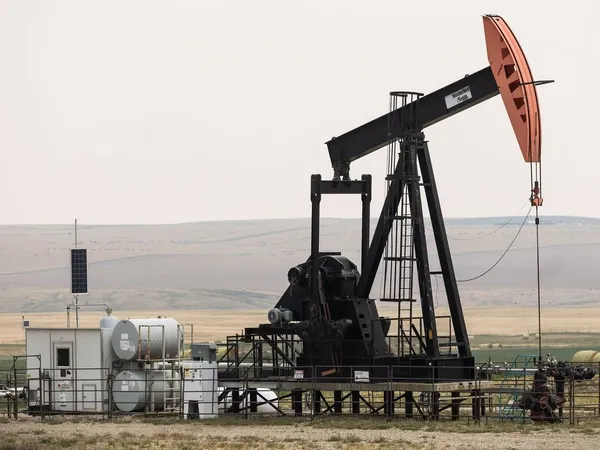
Brace for Impact: Alberta Faces Bigger Oil Discounts and Budget Deficits as U.S. Tariffs Loom
2025-01-14
Author: Charlotte
Alberta's Economic Concerns
Alberta Premier Danielle Smith has sounded the alarm over the potential re-imposition of substantial discounts on Canadian crude oil, as new U.S. tariffs threaten to target all Alberta exports, including the crucial oil and natural gas sectors. This could lead to significant financial repercussions for the province, including the possibility of returning to a budget deficit.
Trade Discussions with U.S. Leadership
After her recent visit to Florida to discuss trade issues with President-elect Donald Trump, Smith recognized the gravity of the situation. The anticipated 25 percent tariffs on all Canadian energy products are maintaining a shadow of uncertainty over Alberta's economic future. Smith expressed her concerns about the conversation, which, despite being termed constructive, offered little hope for exemptions from the proposed trade levies.
Expectations on Tariffs
"I am not expecting any exemptions," Smith told reporters. "We need to prepare for the real possibility that we could see deficits in Alberta if these tariffs are enforced."
Impact of U.S. Tariffs
Trump's administration has repeatedly indicated the potential for tariffs targeting Canada and Mexico, arguing these measures could pressure both countries to address issues like illegal immigration and drug trafficking. However, Trump's recent remarks about making Canada the 51st state raised eyebrows, suggesting a dramatic shift in U.S.-Canada relations and economic discussions.
Wider Implications
Analysts warn that if tariffs come into effect, not only would Alberta producers feel the financial sting through decreased prices, but American refineries and consumers could also face higher costs, resulting in a ripple effect throughout the energy market. The pain of these tariffs would particularly impact refiners in U.S. Midwest states, while the Alberta economy could absorb much of the fallout.
Price Differential
As the situation with U.S. tariffs develops, it’s likely that the discount on Canadian oil—specifically the price differential between West Texas Intermediate (WTI) and Western Canadian Select (WCS)—will expand further. Reports indicate that this differential has already widened from $13.60 to $14.50 a barrel over a short period, following the announcement of the tariffs.
Monitoring and Strategy
In light of these potential changes, Alberta's government and industry stakeholders are closely monitoring the energy market and strategizing for what could be a tumultuous road ahead. The historical context reveals that the price differential has fluctuated dramatically—soaring to as much as $46 a barrel in late 2018 due to pipeline constraints—making it a key indicator of Alberta's financial health.
Future Considerations
"The gap on Western Canada Select could widen again with these tariffs," Smith warned. "We have enjoyed a narrowing gap recently, but we must remain vigilant as this situation unfolds."
Conclusion
With uncertainty hanging over Alberta's energy sector, all eyes are now on the upcoming U.S. administration's trade policies and their implications for the Canadian economy. How Alberta navigates this potential crisis will be pivotal for its future financial stability and growth.



 Brasil (PT)
Brasil (PT)
 Canada (EN)
Canada (EN)
 Chile (ES)
Chile (ES)
 Česko (CS)
Česko (CS)
 대한민국 (KO)
대한민국 (KO)
 España (ES)
España (ES)
 France (FR)
France (FR)
 Hong Kong (EN)
Hong Kong (EN)
 Italia (IT)
Italia (IT)
 日本 (JA)
日本 (JA)
 Magyarország (HU)
Magyarország (HU)
 Norge (NO)
Norge (NO)
 Polska (PL)
Polska (PL)
 Schweiz (DE)
Schweiz (DE)
 Singapore (EN)
Singapore (EN)
 Sverige (SV)
Sverige (SV)
 Suomi (FI)
Suomi (FI)
 Türkiye (TR)
Türkiye (TR)
 الإمارات العربية المتحدة (AR)
الإمارات العربية المتحدة (AR)